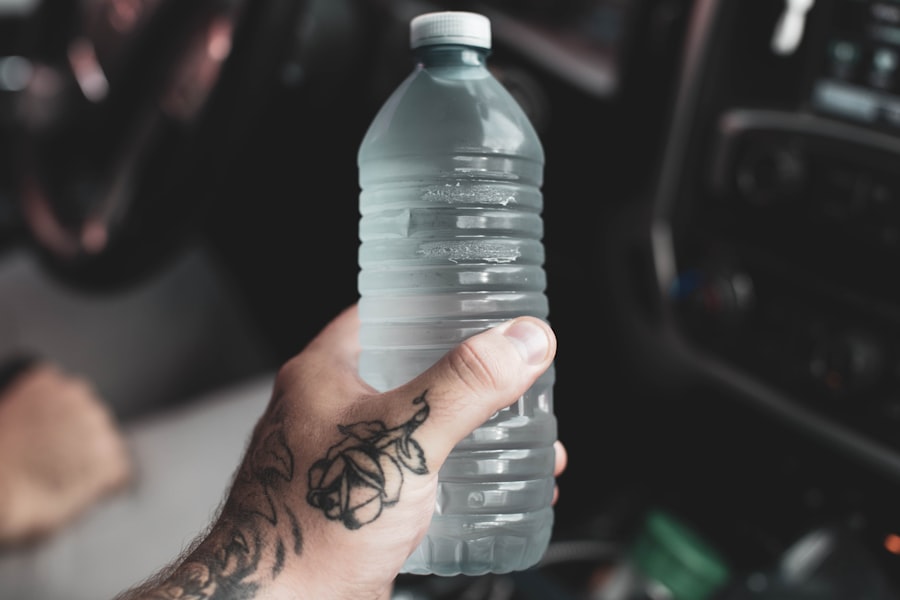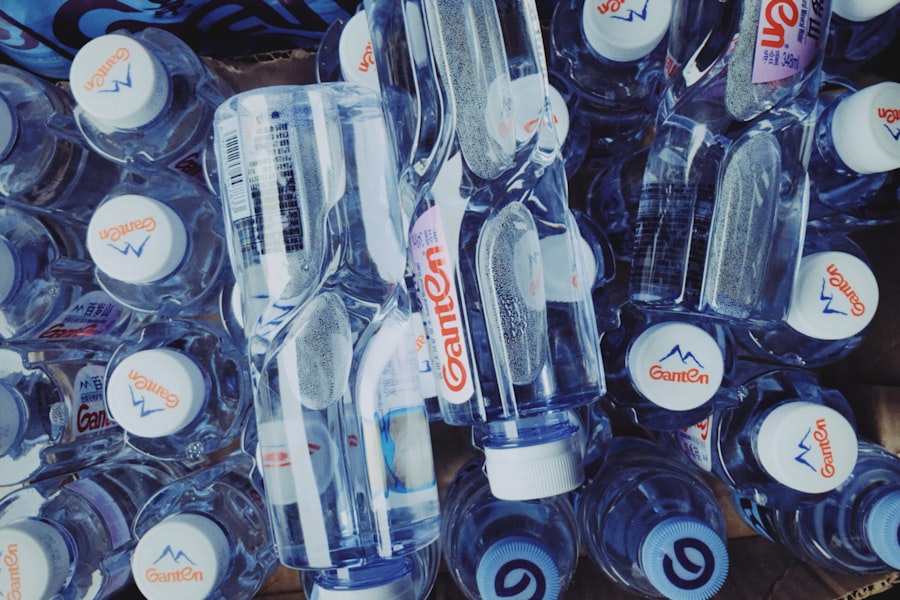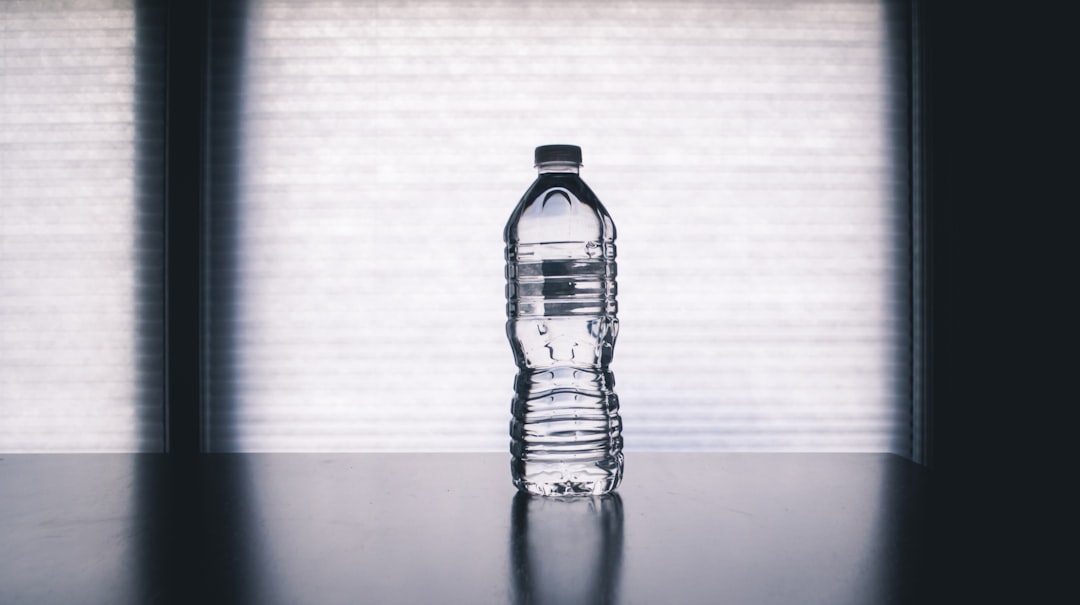Bottled water has become a ubiquitous presence in modern society, often seen as a convenient and refreshing alternative to tap water. Its rise in popularity can be attributed to various factors, including the perception of purity, convenience, and the marketing strategies employed by bottled water companies. Consumers are frequently drawn to the idea that bottled water is cleaner and safer than municipal supplies, leading to a significant increase in its consumption over the past few decades.
This trend has transformed bottled water into a multi-billion-dollar industry, with brands competing for market share and consumer loyalty. However, beneath the surface of this seemingly innocuous product lies a complex web of environmental, health, and ethical concerns. While bottled water may offer convenience, it also raises critical questions about sustainability and the long-term implications of its widespread use.
As society becomes increasingly aware of these issues, it is essential to examine the various dimensions of bottled water consumption, from its environmental impact to the health risks associated with plastic packaging.
Key Takeaways
- Bottled water poses significant environmental challenges, including plastic pollution and resource depletion.
- Chemicals can leach from plastic bottles, potentially leading to health risks for consumers.
- Proper recycling and government regulations are crucial to mitigating the negative impacts of bottled water.
- Alternatives like reusable bottles and tap water offer safer and more sustainable hydration options.
- Consumer awareness and behavior play a key role in reducing the long-term environmental effects of plastic pollution.
The Environmental Impact of Bottled Water
The environmental consequences of bottled water production and consumption are profound and far-reaching. The process begins with the extraction of water from natural sources, which can lead to depletion of local aquifers and disruption of ecosystems. In many cases, companies draw water from areas already facing water scarcity, exacerbating existing environmental challenges.
This extraction not only threatens local wildlife but also affects communities that rely on these water sources for their daily needs. Moreover, the production of plastic bottles contributes significantly to greenhouse gas emissions. The manufacturing process requires substantial energy and resources, from the extraction of petroleum used to create plastic to the transportation of finished products.
Once consumed, these bottles often end up in landfills or oceans, where they can take hundreds of years to decompose. The sheer volume of plastic waste generated by bottled water consumption poses a serious threat to the environment, highlighting the urgent need for more sustainable practices.
Chemical Leaching from Plastic Bottles

One of the lesser-known dangers associated with bottled water is the potential for chemical leaching from plastic containers. Many bottled waters are packaged in polyethylene terephthalate (PET) bottles, which can release harmful substances into the water over time. Factors such as temperature and exposure to sunlight can accelerate this leaching process, raising concerns about the safety of consuming bottled water that has been stored improperly.
Chemicals such as bisphenol A (BPA) and phthalates have been linked to various health issues, including hormonal disruptions and increased risk of certain cancers. While many manufacturers have moved towards BPA-free plastics in response to consumer demand for safer products, the presence of other harmful chemicals remains a concern. As consumers become more aware of these risks, it is crucial to consider the implications of drinking water from plastic bottles and explore safer alternatives.
Health Risks Associated with Bottled Water
| Health Risk | Description | Potential Cause | Impact |
|---|---|---|---|
| Microbial Contamination | Presence of bacteria, viruses, or parasites in bottled water | Improper bottling or storage conditions | Gastrointestinal illnesses, infections |
| Chemical Leaching | Release of chemicals from plastic bottles into water | Use of BPA or phthalates in plastic bottles | Hormonal disruption, increased cancer risk |
| Microplastics | Ingestion of tiny plastic particles found in bottled water | Degradation of plastic packaging | Potential inflammation and toxicity |
| Heavy Metal Contamination | Trace amounts of metals like lead or arsenic | Source water contamination or leaching from equipment | Neurological damage, kidney problems |
| High Sodium Levels | Elevated sodium content in some bottled waters | Natural mineral content or added minerals | Increased blood pressure, cardiovascular risk |
In addition to chemical leaching, there are several health risks associated with consuming bottled water that warrant attention. One significant concern is the potential for bacterial contamination. Bottled water is not immune to contamination during production, transportation, or storage.
Instances of bottled water recalls due to microbial contamination have been reported, raising questions about the safety and reliability of these products. Furthermore, the perception that bottled water is inherently safer than tap water can lead consumers to overlook potential contaminants present in both sources. While municipal water supplies are subject to strict regulations and regular testing, bottled water is often less regulated.
This discrepancy can result in bottled water containing higher levels of certain contaminants than tap water, undermining the belief that it is a healthier choice. As awareness grows regarding these health risks, consumers are encouraged to critically evaluate their choices and consider the implications of relying on bottled water.
The Connection Between Bottled Water and Plastic Pollution
The relationship between bottled water consumption and plastic pollution is undeniable. The convenience of single-use plastic bottles has contributed significantly to the global plastic crisis, with millions of tons of plastic waste entering oceans and landfills each year. This pollution not only harms marine life but also disrupts ecosystems and poses risks to human health through the food chain.
Efforts to combat plastic pollution have gained momentum in recent years, with various organizations advocating for reduced plastic use and increased recycling efforts. However, the bottled water industry continues to thrive, often prioritizing profit over environmental responsibility. As consumers become more conscious of their environmental footprint, it is essential for them to recognize the role they play in perpetuating plastic pollution through their choices regarding bottled water.
Alternatives to Bottled Water

Fortunately, there are numerous alternatives to bottled water that can help mitigate its environmental impact while ensuring access to safe drinking water.
These containers not only reduce reliance on single-use plastics but also keep beverages cold or hot for extended periods.
By investing in a high-quality reusable bottle, consumers can significantly decrease their plastic consumption while enjoying the convenience of portable hydration. Another alternative is home filtration systems that provide clean drinking water without the need for bottled products. Various filtration options are available, including pitcher filters, faucet-mounted systems, and under-sink units that remove impurities from tap water.
These systems not only improve taste and odor but also reduce exposure to harmful contaminants. By choosing these alternatives, consumers can make a positive impact on both their health and the environment.
The Importance of Properly Recycling Plastic Bottles
While reducing consumption is crucial in addressing the issues associated with bottled water, proper recycling practices also play a vital role in mitigating plastic pollution. Many consumers may not realize that recycling rates for plastic bottles remain alarmingly low; a significant percentage ends up in landfills or as litter in natural environments. Educating individuals about the importance of recycling and providing accessible recycling facilities can help improve these rates.
Proper recycling involves more than just tossing bottles into a recycling bin; it requires understanding local recycling guidelines and ensuring that bottles are clean and free from contaminants before disposal. Communities can implement programs that encourage responsible recycling habits and raise awareness about the environmental benefits of recycling plastic bottles. By fostering a culture of recycling, society can work towards reducing plastic waste and its detrimental effects on the environment.
The Role of Government Regulations in Bottled Water Safety
Government regulations play a crucial role in ensuring the safety and quality of bottled water products. In many countries, bottled water is subject to less stringent regulations than municipal tap water, leading to potential gaps in safety standards. Regulatory bodies must establish clear guidelines for bottled water production, labeling, and testing to protect consumers from harmful contaminants.
In recent years, there has been a growing call for increased transparency within the bottled water industry. Consumers deserve access to information about the source of their drinking water and any potential contaminants present in bottled products. By advocating for stronger regulations and holding companies accountable for their practices, governments can help ensure that consumers are provided with safe drinking options while addressing public health concerns.
The Influence of Bottled Water Industry on Consumer Behavior
The bottled water industry has mastered the art of marketing, creating an image that associates their products with health, wellness, and an active lifestyle. This branding strategy has successfully influenced consumer behavior, leading many individuals to perceive bottled water as a superior choice compared to tap water. The allure of convenience combined with clever advertising has resulted in a culture where bottled water is often seen as a status symbol rather than just a beverage.
As consumers become more aware of the environmental and health implications associated with bottled water consumption, there is an opportunity for change in consumer behavior. Education campaigns highlighting the benefits of tap water and reusable alternatives can help shift perceptions and encourage individuals to make more sustainable choices. By challenging the narrative perpetuated by the bottled water industry, consumers can reclaim their power and prioritize their health and the environment.
The Long-Term Effects of Plastic Pollution on the Environment
The long-term effects of plastic pollution extend far beyond immediate environmental degradation; they pose significant threats to biodiversity and ecosystem stability. Marine life is particularly vulnerable to plastic waste, with countless animals ingesting or becoming entangled in discarded plastics. This not only leads to suffering for individual creatures but also disrupts entire food chains and ecosystems.
Moreover, microplastics—tiny particles resulting from the breakdown of larger plastic items—have infiltrated even the most remote areas of our planet. These particles have been found in oceans, rivers, soil, and even in human bodies through food and drinking water sources. The long-term consequences of microplastic pollution remain largely unknown but could have profound implications for both human health and environmental integrity.
Taking Action to Reduce the Hidden Dangers of Bottled Water
In conclusion, while bottled water may offer convenience and perceived safety, it is essential for consumers to recognize its hidden dangers and environmental impact. From chemical leaching to plastic pollution, the consequences of bottled water consumption extend far beyond individual choices. By exploring alternatives such as reusable bottles and home filtration systems, individuals can take proactive steps towards reducing their reliance on single-use plastics.
Additionally, advocating for stronger government regulations and promoting proper recycling practices are crucial components in addressing this pressing issue. As awareness grows regarding the implications of bottled water consumption on health and the environment, society has an opportunity to shift towards more sustainable practices that prioritize both personal well-being and ecological integrity. Taking action today can pave the way for a healthier future for individuals and the planet alike.
Bottled water has become a popular choice for many, but it comes with several drawbacks that can impact both health and the environment. For instance, the leaching of harmful chemicals from plastic bottles into the water can pose health risks. To explore more about the negative effects of bottled water, you can read this insightful article on the topic: Why Bottled Water is Bad for You.
WATCH THIS! The $400 Billion Water Lie: Why Bottled Water Is a Scam
FAQs
Is bottled water less healthy than tap water?
Bottled water is not necessarily less healthy than tap water, but it can sometimes contain microplastics or lack essential minerals found in some tap water. Additionally, the quality of bottled water varies by brand and source.
Can chemicals from plastic bottles affect the water?
Yes, chemicals such as BPA or phthalates can leach from plastic bottles into the water, especially if bottles are exposed to heat or stored for long periods. These chemicals may pose health risks over time.
Does bottled water have environmental impacts?
Yes, bottled water production and disposal contribute to plastic pollution, carbon emissions, and resource depletion. Plastic bottles often end up in landfills or oceans, harming wildlife and ecosystems.
Is bottled water more expensive than tap water?
Yes, bottled water is significantly more expensive than tap water. The cost includes packaging, transportation, and marketing, making it less economical for regular consumption.
Are there safety concerns with bottled water storage?
Improper storage of bottled water, such as exposure to heat or sunlight, can degrade the plastic and potentially contaminate the water. It is important to store bottled water in a cool, dark place.
Does bottled water have a better taste than tap water?
Taste is subjective, but some people prefer bottled water due to its mineral content or filtration process. However, many municipal water systems provide high-quality, well-treated water that tastes good.
Is bottled water regulated for safety?
Yes, bottled water is regulated by agencies such as the FDA in the United States, but standards can differ from those for tap water, which is regulated by the EPA. Both aim to ensure safety but use different testing protocols.
